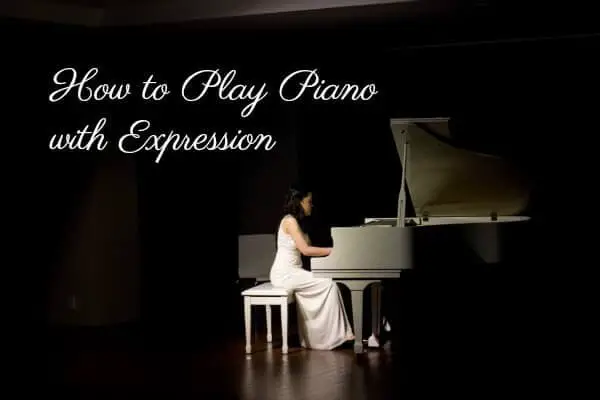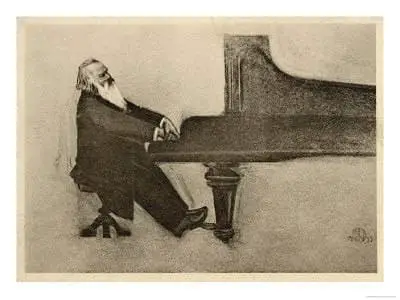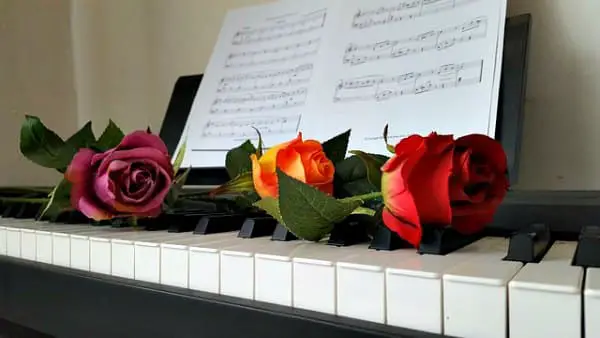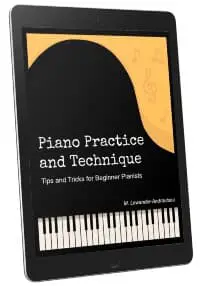- Home
- Piano Technique
- How to Play Piano
How to Play Piano Beautifully
Technique and Expression
This article may contain compensated links. Please read the disclosure for more info.
Playing the piano is a beautiful and rewarding experience.
Still, learning how to play piano takes constant work and practice to master both technique and expression. It's important to remember that being technically skilled does not automatically make your playing beautiful, and playing with great emotion does not necessarily mean you're playing well technically.
To truly excel at playing piano, you must develop both your technical skills and ability to convey emotion. Don't focus solely on one aspect while neglecting the other, as they are equally important. Keep practicing and honing your skills, but also take the time to connect with the music and express its beauty through your playing.
Technique vs Expression
 Learning how to play piano beautifully requires constant work with both technique and expression.
Learning how to play piano beautifully requires constant work with both technique and expression.If you want to play with expression- why do you need to practice piano technique?
To play with expression, it might seem like you can bypass practicing piano technique altogether. However, that couldn't be further from the truth.
- You need technical skills to be able to express whatever you want with the piece. Don't let a lack of technical skills make you substitute another way of expressing the music just because you can't do it the way you want to yet.
- You need to work with expression to share the beauty of music. Nobody likes a mechanical performance, no matter how technically impressive.
However, the study of technique and expression is an ongoing process. You are never "done." It's a lifetime pursuit. At first, it might be helpful to work on different aspects of playing, such as improving finger dexterity, coordination, dynamic expression, tempo, phrasing, articulation, and more.
By mastering all these nitty-gritty details, you will develop a toolkit of piano technical skills that you can use to serve your expression. Ultimately, technique and expression should go hand in hand all the time.
Piano Technique
Tip: Try to play even a scale with thoughtfulness and beauty. Not because you have to, but because it sounds better and keeps your inner «expressiveness» from hibernating...
The study of piano technique is an essential foundation for any aspiring pianist. While it may seem like a daunting task to master, with proper instruction and practice, it can become an enjoyable and even meditative process.
As piano teachers, we often focus on technique because it provides an easy way to measure progress and improvement. It's a more analytical aspect of playing, similar to a physical workout, where you can see and feel the results of your efforts.
While it's crucial to develop technical skills, it's equally important to remember that the ultimate goal of playing the piano is to create beautiful music that speaks to the soul... Playing technical exercises without emotion or feeling is possible, but it's definitely not recommended.
As you practice scales, chords, arpeggios, and other drills, try to approach them with thoughtfulness and intention. Focus on producing a beautiful sound, not just hitting the correct notes.
This will help keep your inner expressiveness from hibernating and make your playing more enjoyable for both yourself and your listeners. Remember, technique and expression are not mutually exclusive but rather two sides of the same coin.
How to Play Piano with Expression
Of course, playing music with expression is what makes it truly come alive! But it's surprising how often pianists who are tackling challenging pieces can forget this crucial aspect. With so many notes to think about, it can be tough to find the time to truly convey the emotions and story behind the music...!
But let me tell you, expression is worth digging deeper for. No matter how well you play the technical elements like dynamics, phrasing, and articulation, it's your heart and soul that really bring the music to life. Without that emotional connection, the music can sound empty and fake.
So how can you practice expression? Well, unless you're one of those rare individuals for whom it comes naturally, it's something you need to actively discover and work on.
 Johannes Brahms at the Piano
Johannes Brahms at the PianoEveryone has a vast library of "expressional" qualities inside - you just need to find your way around this inner library and not be afraid or shy of letting your expression out.
But you also need to learn how to play piano and listen; to make sure that what you want to express is also what can be heard!
What else can you do?
- Let yourself feel. Listen to a lot of music, and let yourself associate with whatever you like. Cry, laugh, get romantic, get crazy, dance, sing!
- Learn about the piece you are playing. What it's about, what the composer was living through when writing it (like Eric Clapton's «Tears in Heaven,» it will never be just another beautiful piece when you know he wrote it about his son.)
- Let yourself get moved and touched. Listen to Schubert's «Elf King» lyrics, or take a Chopin Ballad, for example, number 2. This piece is said to be inspired (as many compositions of that period) by a poem by the Polish national poet Adam Mickiewicz called "Le Lac de Willis." Reading about that poem and then interpreting the piece gives you a dire story to express...
- Or, perhaps more important: Make up your own story about the music. Something that matters to you. Add your own colors and interpretation of the composition.
Summary
In summary, mastering piano technique is an essential foundation for any aspiring pianist, and with proper instruction and practice, it can become an enjoyable and even meditative process.
However, it's equally important to remember that the ultimate goal of playing the piano is to create beautiful music that speaks to the soul. As pianists, we should strive to play with expression, which can be challenging when tackling difficult pieces.
To practice expression, we need to actively discover and work on it, by listening to a lot of music and letting ourselves feel, learning about the piece we are playing, as well as making up our own "story".
By combining technical skills with expressiveness, we can bring the music to life and make it more enjoyable for both ourselves and our listeners. After all, music is about expression, feeling, and life!





